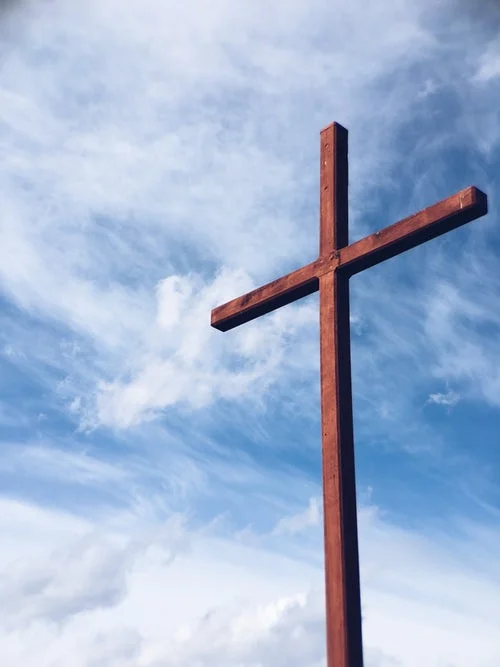The God we worship, the God of Scripture, is a lot of things: wise, powerful, omniscient, omnipotent, loving, forgiving... And on any day, most of us a need a God who possesses these qualities and more.
All in Salvation
It’s Not Complicated
Almost daily, while at work, I encounter a tedious battle. It’s the battle of gaining access to websites. First, I enter the website address. Once there, I type in my username and password. Then I find out that I must reset my password because I haven’t visited that site in over thirty days. I’m running out of new password options (and patience), but I try one more time. After my password is accepted, a verification code is required. I must choose to receive the code by cell phone text or email. I choose by text because it’s faster. I wait for the text to come through, then enter the several-digit code into the appropriate box before it expires and finally click “OK”. Next, the security questions must be answered correctly. Finally, I’m at the Home page and I must remain active on the site so that I’m not automatically logged out.
Destiny: Where Am I Headed After I Die?
We’ve come full circle from the dust of creation to the “ashes to ashes, dust to dust” of death (Genesis 3:19). One for one we die, that much is certain. Inevitably then, the final big question will hang in the air: where am I headed after I die?
Meaning: What Brings Life Meaning?
The big, big questions bleed into each other, don’t they ladies? Of necessity, meaningfollows my answer to being. Once I understand that I live and move and have (my)beingin God, I can more easily determine what will bring meaning to life for me.
Origin: How Did I Come into Being?
The apostle Paul is on a roll. The city of Athens was a junkyard of idols(Acts 17:16, MSG), befitting the myriad of gods they represented. Add to that this detail: “The Athenians had a foolish notion that they were self-produced, and were the aboriginals of all mankind…that the first men sprung up in Attica like radishes.”* Laugh not, ladies. One wonders if our culture has taken a step back in time—oh, not graven images, but idols of fame, fortune, and self; not radishes per se, but persistent theories of evolution.
A God Who Searches
Jesus told a short story to a group of grumbling religious leaders to illustrate a poignant point—God will intensely search for those who need His love and salvation. He used a desperate woman, of all things, for his story. She’d lost a coin worth a day’s wage. She had only ten and one was lost. She lit a small oil lamp, the only source of light in her small windowless home, and searched carefully until she found it. She then invited her women friends and neighbors to rejoice with her. Jesus adds in verse 10, “I tell you, in the same way, there is joy in the presence of God over one sinner who repents.”
Be Contagious
What goes through your mind when someone with a bad cough sits beside you? Do you pray, Lord, don’t let me catch what he has! Being in public while physically contagious isn’t good. But believers are all called to be spiritually contagious. We are to go forth and spread the gospel of Jesus.
Be Available and Purposeful
The woman near me in the waiting room began to talk. She told me her age, how she met her husband, about their first date, how long they had been married, that her brown hair was not dyed, and much more. Frankly, I was amazed at the amount of personal information she shared.
Here Comes the Bridegroom!
“I like it when it storms because we get to eat ice cream!” a neighbor child told my daughter. That is a little odd, I thought at the time.
And Jesus said, “I Am” … the true vine
The deliberate “I am” metaphors in John culminate in a peek at the Jesus who not only provides life and light, but who produces fruit in those who believe in Him while they are still on earth.
And Jesus said, “I Am” … life, forevermore
Jesus’ “I am the gate”, and “I am the good shepherd” metaphors bewildered His listeners. At the Feast of Dedication (Hanukkah) their questions continued: “If you are the Christ, tell us plainly” (John 10:24). Again they tried to stone Him, and again He slipped away, across the Jordan, where many believed (10:31-42). He was there when news came that His friend Lazarus was sick.
And Jesus said, “I Am” … life, to the full
The Pharisees bombarded the “light of the world” with questions, in total denial of His “I am” claims. When Jesus stated, “before Abraham was born, I am!”…they picked up stones to stone him (John 8:58-59). They knew He was claiming to be God; but it was not yet His time so He slipped away, continuing on to heal a man born blind. The man believed and worshipped Jesus; the Pharisees remained in their sin (9:1-41).
And Jesus said, “I Am” … your sustenance, and your light
The crowd by the Sea of Galilee was mystified. First, they had been fed well the previous evening, all 5000 plus of them, from “five small barley loaves and two small fish” (John 6:9). Then Jesus had sailed across the lake without a boat—how in the world (6:22)? Miracles were foremost on their minds. Give us more they said, manna for this day too, "bread from heaven”, so we can believe you were really sent by God (6:29-31).
And Jesus said, “I Am” … the Messiah, called Christ
Imagine the surprise of the Samaritan woman when Jesus talked to her by Jacob’s well that day, for Jews do not associate with Samaritans (John 4:9). When He told her He had living water to offer, “a spring of water welling up to eternal life” (4:14), she was intrigued. That He knew about her five husbands, and that “the man you now have is not your husband” (4:18), she saw He was a prophet. When He revealed that “salvation is from the Jews” (4:22), she indicated she was aware of the expected Messiah who would make all things clear.
Freedom
Some people think being a Christian means giving up fun, becoming dull and boring. For me, that is just not the case.
A Story of Grace
What is your spiritual story? Believer, what would your life be like today without the Lord? Periodically, it’s good to remember our past, so we can cherish our present and eternal state.
The Simple Things: Love
In 1961 the Broadway show Carnival opened, its theme song, Love Makes the World go ’Round by Bob Merrill, an immediate hit. Such legends of my day as Paul Anka, the Everly Brothers, Bing Crosby, and Johnny Mathis included it in their repertoires. Of course it was about romantic love: “a silver song, making the earth whirl softly”.
The Simple Things: Grace
In 1948 A.W. Tozer (1897-1963) wrote in his classic, The Pursuit of God: “Every age has its own characteristics. Right now we are in an age of religious complexity. The simplicity which is in Christ is rarely found among us.” Imagine how Tozer would feel if he were alive today. Nothing is simple--our schedules are loaded, our deadlines frantic, and the world distracts, not to mention the complexities of the “religious”.
The Shepherds: Go and See
God interrupted the commonplace. The glory of God shattered darkness. A message from an angel broke the silence. The Savior, Christ the Lord, had been born! As shepherds in the field beheld the angel, their initial response was fear. But with the announcement of the birth of the awaited One, fear turned to determination. The shepherds said, Let’s go…and see...(Luke 2:15). They hurried off and found Mary and Joseph, and the heralded baby lying in a manger.
Messages from God
With these words a 400-year silence of God was broken. Zechariah received God’s message from the angel, Gabriel, who announced the birth of a son filled with the Holy Spirit. He would be used of God to prepare the way for the Lord. Another message came from Gabriel shortly thereafter. He proclaimed to the virgin Mary that she would give birth to the Son of God.




















